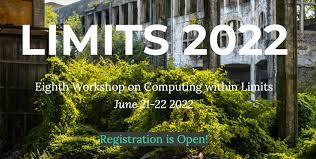
A Consensus Study Report
Earlier this year (2022) The committee on Responsible Computing Research of the National Academies of Sciences, Engineering and Medicine in the USA published a Consensus Study Report entitled Fostering Responsible Computing Research, Foundations and
The Committee members predominantly came from US universities (with one representative from Australia), but also included representatives from Microsoft, Google and the Carnegie Endowment for International Peace. It is a 100 page document, but the following conclusions and recommendations are all to be found in the summary.
Conclusions
The process led to the committee coming to three conclusions that underpin the report recommendations:
Conclusion 1. To be responsible, computing research needs to expand to include consideration of ethical and societal impact concerns and determination of effective ways to address them.
Conclusion 2. To be responsible, computing research needs to engage the full spectrum of stakeholders and deploy rigorous methodologies and frameworks that have proven effective for identifying the complicated social dynamics that are relevant to these ethical and societal impact concerns.
Conclusion 3. For computing technologies to be used responsibly, governments need to establish policies and regulations to protect against adverse ethical and societal impacts. Computing researchers can assist by revealing limitations of their research results and identifying possible adverse impacts and needs for government intervention.
Recommendations
Recommendation 1. The computing research community should reshape the ways computing research is formulated and undertaken to ensure that ethical and societal consequences are considered and addressed appropriately from the start.
Recommendation 2. The computing research community should initiate projects that foster responsible computing research, including research that leads to societal benefits and ethical societal impact and research that helps avoid or mitigate negative outcomes and harms. Both research sponsors and research institutions should encourage and support the pursuit of such projects.
Recommendation 3. Universities, scientific and professional societies, and research and education sponsors should support the development of the expertise needed to integrate social and behavioral science and ethical thinking into computing research.
Recommendation 4. Computing research organizations—working with scientific and professional societies and research sponsors—should ensure that their computing faculty, students, and research staff have access to scholars with the expertise to advise them in examining potential ethical and societal implications of proposed and ongoing research activities, including ways to engage relevant groups of stakeholders. Computing researchers should seek out such advice.
Recommendation 5. Sponsors of computing research should require that ethical and societal considerations be interwoven into research proposals, evaluated in proposal review, and included in project reports.
Recommendation 6. Scientific and professional societies and other publishers of computing research should take steps to ensure that ethical and societal considerations are appropriately addressed in publications. The computing research community should likewise take steps to ensure that these considerations are appropriately addressed in the public release of artifacts.
Recommendation 7. Computing researchers who are involved in the development or deployment of systems should adhere to established best practices in the computing community for system design, oversight, and monitoring.
Recommendation 8. Research sponsors, research institutions, and scientific and professional societies should encourage computing researchers to engage with the public and with the public interest and support them in doing so.
All of which makes perfect sense, so why not take a look at the report yourself? There is lots of stuff about bias in data sets and other issues that we have addressed previously and It’s free to download here.
And take a look at what Mozilla have been doing here.

